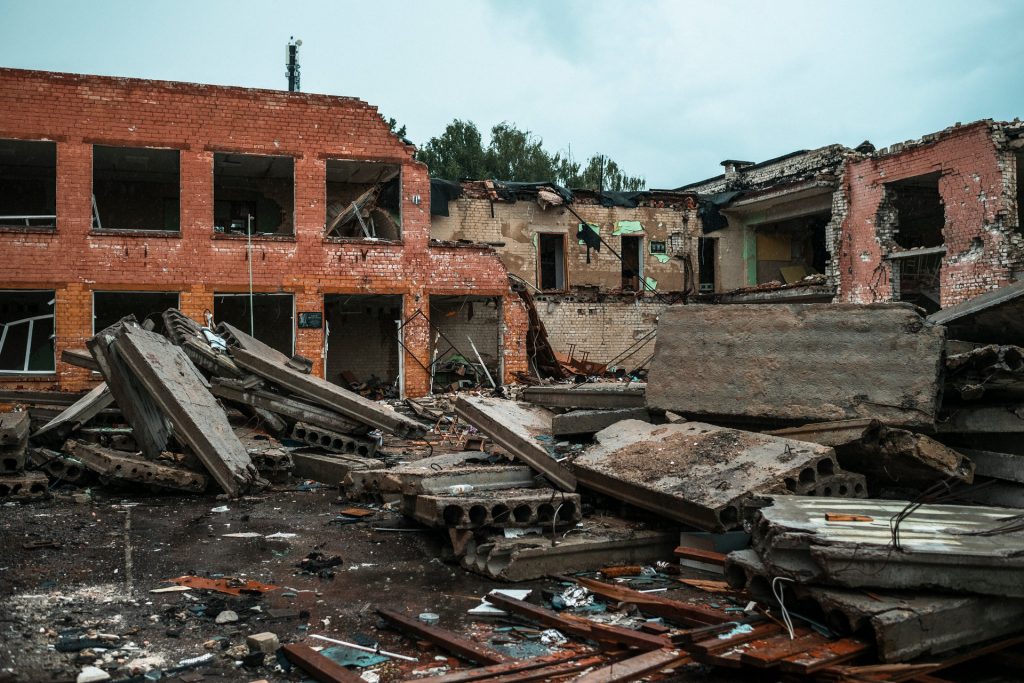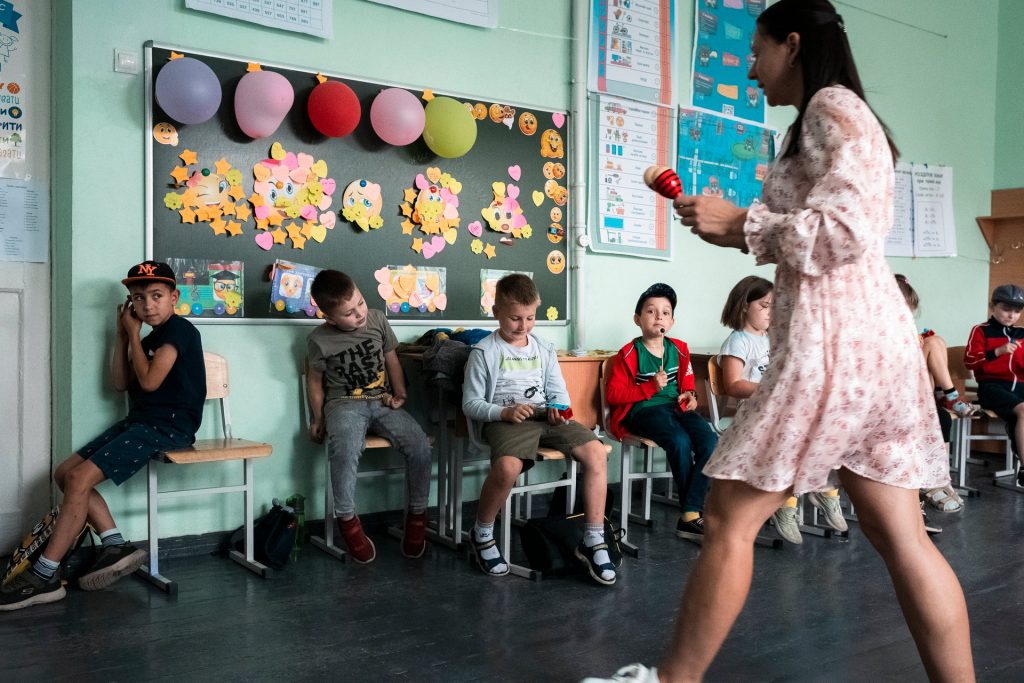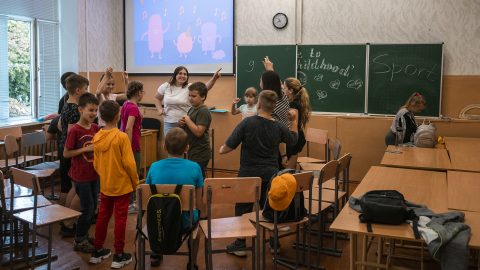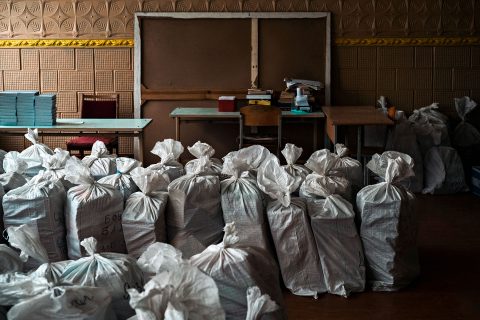FCA leads school return project in Ukraine with €14 million EU funding
FCA’s educational work in Ukraine is progressing – schools are being renovated and teachers supported with EU co-financing of €14 million.
14 million euros of EU funding will help children return to school in Ukraine through a new project led by FCA.
The education project sees FCA receive €5.5 million from EU Civil Protection and Humanitarian Aid (ECHO), while project partners Save the Children and People In Need will each receive €4.2 million. In addition, War Child Holland will benefit from an approximately €50,000 share.
“This 14 million euro funding is very important and shows the commitment of the EU to help the Ukrainian school system to get back on its feet. Sadly, it is just a first step, the needs are so large that more funding will need to be pledged in the future for every child to be able to go back to school,” says Yannic Georis, FCA’s emergency response manager in Ukraine.
School rehabilitation and well-being in focus
During the next 14 months, FCA and its partners aim to reach approximately 67,000 children, focusing on rehabilitating schools, organising temporary learning spaces and digital learning centers, psychosocial support and fostering the well-being of teachers.
“There is a lot of positive defiance and willpower throughout the education system, everyone wants to be back in a working mode. Children and teachers have a right and a need to return,” Peter Hyll-Larsen, FCA’s education expert in Ukraine, describes the situation in the country.

Hyll-Larsen highlights, however, that infrastructural damage cannot be repaired as fast as everyone would like. According to the Ukrainian Ministry of Education and Science, a total of 286 schools have been destroyed during the war by mid-September. In addition, 2,477 schools have been damaged in bombing and fighting.
“As some areas in the East become liberated, it is also evident that the initial efforts on mental health, psychosocial support and child protection through education remain crucial – and will remain so for months and years to come,” Hyll-Larsen says.
Schoolwork continues in an unsure situation
The new school year started in September – partly remotely and partly on-site. A condition for returning to school is that the building has functioning shelters. According to expert estimates, 59 per cent of Ukrainian schools meet this condition.
The coming school year can be challenging in many ways in many parts of the country. Due to the war and the energy crisis, schools are already preparing for the possibility that students will have to be sent home due to lack of heating.
Experts now stress that distance learning models, skills and equipment will be needed in the coming winter too. Hyll-Larsen says that the situation is at its worst in liberated areas in the East.
“These areas will face a particularly harsh winter due to very little electricity and hence also very few online learning opportunities.”
FCA equips bomb shelters and trains teachers together with a local partner
Even before receiving ECHO funding, Finn Church Aid had been working diligently to help Ukrainians since the beginning of the war.

This started with emergency aid for Ukrainians fleeing violence within and out of the country. Over the summer, FCA expanded its operations to Northern Ukraine, training local teachers and school psychologists in psychosocial skills. Together with the local partner organisation DOCCU, FCA organised summer clubs for children in the area, where children and young people could spend time together in a safe environment.
During the summer clubs, more than 20 air raid alarms were heard in the area for 30 days, during which children and young people spent hours in poorly equipped bomb shelters.
As fighting continues, FCA will continue to work with DOCCU, equipping the bomb shelters of Chernihiv schools into better learning environments. Teachers will be trained in specialised subjects, like organising lessons in war conditions, increasing interaction during distance education and how to act during air alarms.
FCA’s Ukraine office gets a new country director
In August, FCA completed the official Ukrainian registration process. As a result, Finn Church Aid now has a functioning country office in Ukraine. Patricia Maruschak will start as director of the new country office in October.
“The opportunity to work in Ukraine is really exciting to me. I have Ukrainian-Canadian background. When the invasion began, it was very upsetting. It still is very upsetting, but I feel a lot of pride in the way Ukrainians are responding,” says Maruschak.
“I think the focus on education in emergencies is so important and so needed. Good education is important to people in Ukraine, and that all has been disrupted now. I think the fact that FCA is capable of assisting the government of Ukraine, the people of Ukraine to get their education system running in such a way that works for them under these circumstances, I think it’s incredible valuable.”
FCA will stay in Ukraine, supporting teachers and actively seeking ways to make the school return possible for children. The new country director starts in her position in October.
Text: Ulriikka Myöhänen


